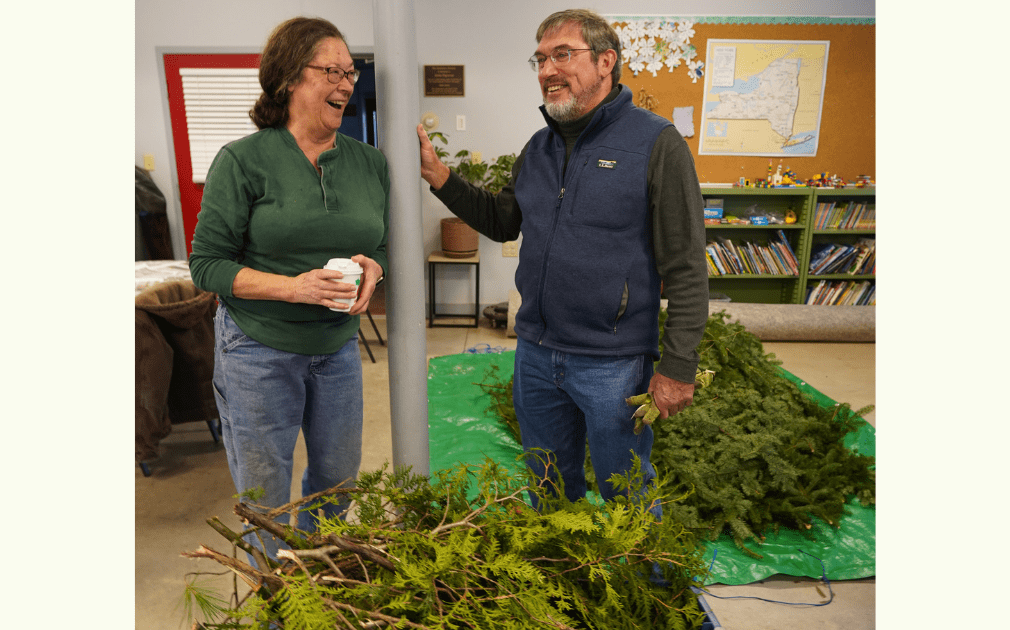How did you come to be a gardener?
I had the privilege of being raised on a working dairy farm. My father raised most of the forage and also had a large vegetable garden. My mother devised many creative incentives to entice us to help in the garden, but they were never quite worth it… to this day, I deeply abhor a long handled hoe! My brother Joe threatened to turn my dad in for “transporting toxic waste” (garden produce). I wanted to call in an airstrike to vaporize the plot! Then, somewhere in my 30’s, a miracle occurred! I found I loved working the dirt and growing plants.
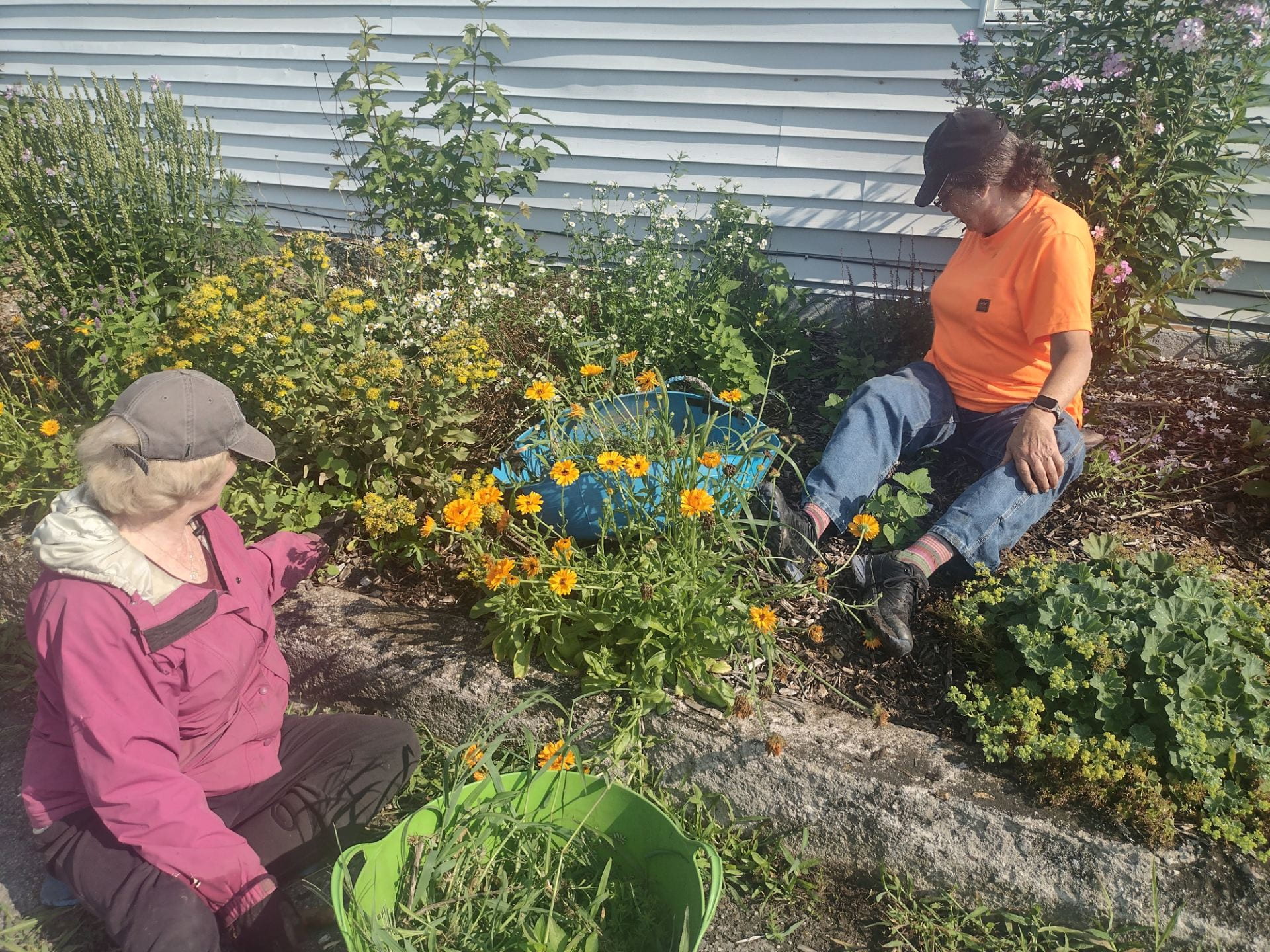
What is a unique project or endeavor you’ve taken on in your garden?
My gardening friends like to tease me about my love for heavy equipment. When I was learning to run the mini excavator, I started in the garden. It was a nice big “safe” space to learn to handle the controls! My joke is that I weeded the garden with an excavator!
What benefits do you gain from gardening?
Dr. Chris Lowry, from Bristol University in the UK, has published interesting research on a non pathogenic soil bacterium called Mycobacterium vaccae. Gardeners encounter it while working with the soil, and it triggers an immune response. This response increases serotonin production, which elevates mood, and decreases stress and anxiety. To put it simply: working in the dirt makes you happy.
Why did you want to become a Master Gardener Volunteer?
Becoming a Master Gardener is one of the best choices I have ever made! It was fascinating to learn, and continue to learn, about the soil, plants and seeds. And I adore the other volunteers. Never a dull moment with this incredible group of humans!
In what ways do you serve as a MGV?
In recent years I’ve helped out by weeding (without the excavator) at the Extension Learning Farm in the Pollinator Garden, high tunnel, and ornamental beds. I wrote a Fruition post about my favorite spring ephemerals, which I see on my walks through the woods in South Colton. This summer I taught about growing fresh herbs, tried out tabling, and helped reduce an invasive species by pulling water chestnut in the Oswegatchie River.
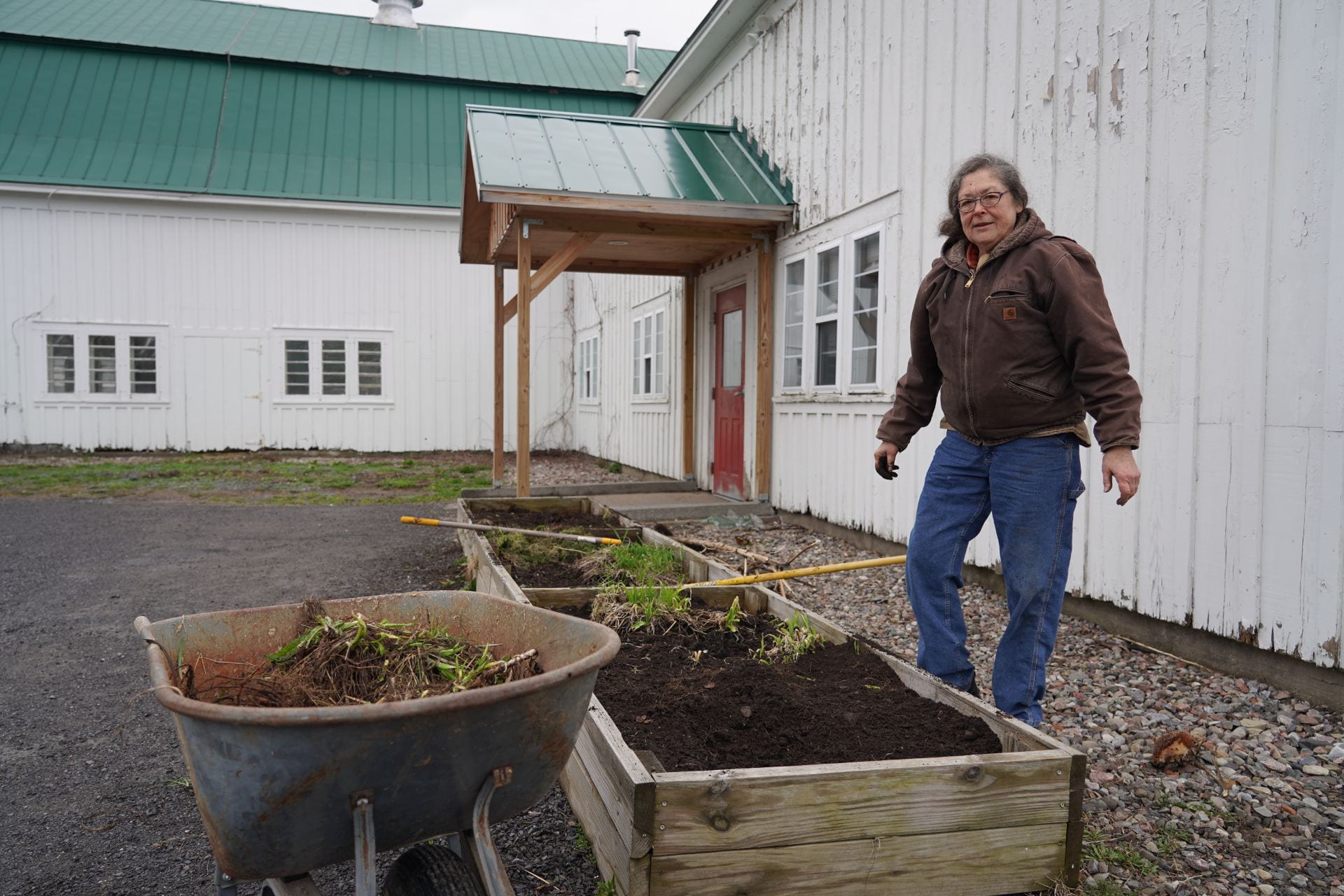
What sparks your interest in the garden?
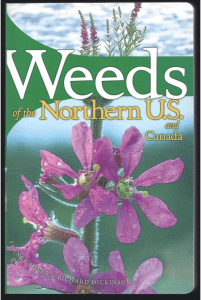
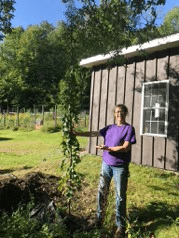
I am very interested in weed identification. In fact, I am fascinated by weeds. This book on weeds is a reference I frequently use. The introduction has a quote from Ralph Waldo Emerson: “A weed is a plant whose virtues have not yet been discovered.”
One of my favorite “discoveries” is tall blue lettuce. It’s just COOL, and it helped me recognize other types of wild lettuce.
What’s next for you in the garden?
Bright spring bulbs are a favorite, so I’m looking forward to them emerging along with the spring ephemerals I love.
Laurie Gilbert-Smiley has been a Master Gardener since 2018. In addition to her cottage garden, she keeps bees on her property in South Colton. She volunteers in the gardens of the Extension Learning Farm, including the Daun Martin-Poole Memorial Pollinator Garden.
